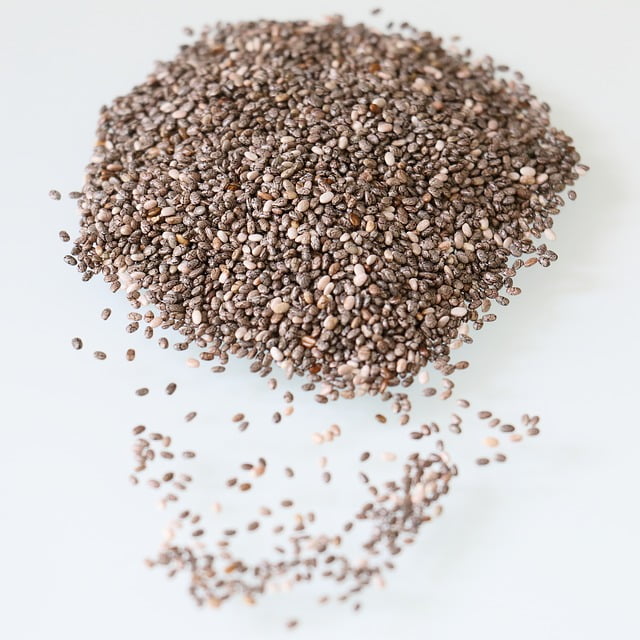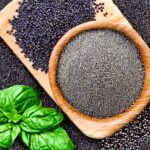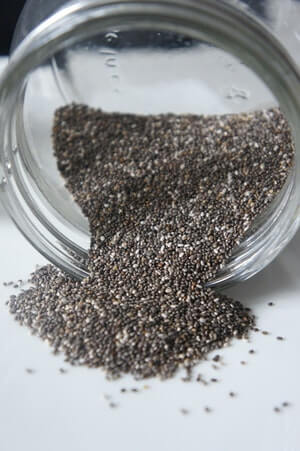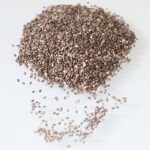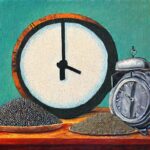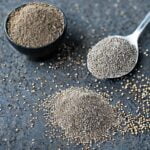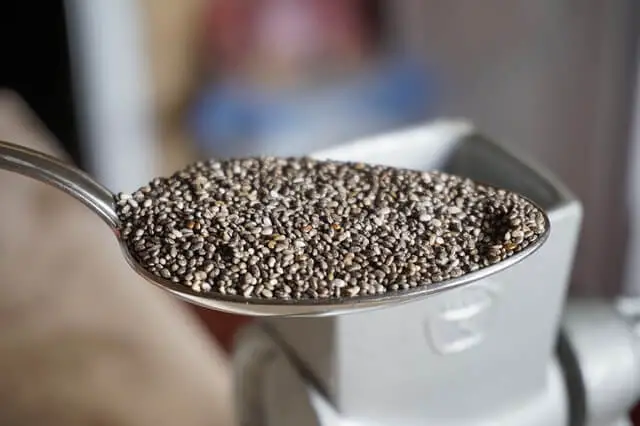In this post, we will look at different words for chia seeds in many different languages around the world.
What are Chia Seeds?
Chia seeds are native to Central and South America and have been used for centuries as a staple food and for medicinal purposes. They have gained popularity in recent years due to their high fiber, protein, and omega-3 fatty acid content, as well as their versatility in cooking and baking.
Chia seeds can be eaten raw or soaked in water or other liquids to create a gel-like consistency, and can be added to a variety of dishes, including oatmeal, smoothies, salads, and baked goods. They can also be ground into a meal and used as a gluten-free flour alternative.
Chia Seeds in Different Languages
Chia seeds are a nutritious and versatile food that is popular around the world. Here are the translations for “chia seeds” in a few of the most popular languages:
- Arabic: حبة الشاي
- Chinese (Simplified): 奇亚籽
- French: Grains de chia
- German: Chia Samen
- Hindi: चिया बीज
- Italian: Semi di chia
- Japanese: チアシード
- Korean: 치아 씨앗
- Portuguese: Sementes de chia
- Spanish: Semillas de chía
- Thai: เชียวซีด
- Vietnamese: Hạt chia
- Bengali: Chia Sagudana or Chia Badam
- Telugu:చియా బీజాలు
- Urdu: چیا بیج
- Tamil: சியா விதைகள்
- Gujarati: ચિયા બીજ
- Kannada: ಚಿಯಾ ಬೀಜಗಳು
- Marathi: चिया बीज
- Punjabi: ਚਿਆ ਸੀਡਸ
Arabic
In Arabic, chia seeds are called “حبة الشاي” (pronounced “hubbat alshay”).
Chinese
In Chinese (Simplified), chia seeds are called “奇亚籽” (pronounced “qí yà zǐ”).
French
In French, chia seeds are called “grains de chia” (pronounced “grehn duh shee-ah”).
German
In German, chia seeds are called “Chia Samen” (pronounced “kee-ah zah-men”).
Hindi
In Hindi, chia seeds are called “चिया बीज” (pronounced “chiyā bīj”).
Italian
In Italian, chia seeds are called “semi di chia” (pronounced “seh-mee dee kee-ah”).
Japanese
In Japanese, chia seeds are called “チアシード” (pronounced “chi-a shi-do”).
Korean
In Korean, chia seeds are called “치아 씨앗” (pronounced “chi-a ssi-aet”).
Portuguese
In Portuguese, chia seeds are called “sementes de chia” (pronounced “seh-men-tchee-z deh kee-ah”).
Spanish
In Spanish, chia seeds are called “semillas de chía” (pronounced “seh-mee-yahs deh kee-ah”).
Thai
In Thai, chia seeds are called “เชียวซีด” (pronounced “chi-ao see-d”).
Vietnamese
In Vietnamese, chia seeds are called “hạt chia” (pronounced “hat chia”).
Bengali
In Bengali, chia seeds are called “chia sagudana” or “chia badam.”
Telugu
In Telugu, chia seeds are called “చియా బీజాలు” (pronounced “chiyā bījālu”).
Urdu
In Urdu, chia seeds are called “چیا بیج” (pronounced “chiyā bīj”).
Tamil
In Tamil, chia seeds are called “சியா விதைகள்” (pronounced “chiyā vitaikal”).
Gujarati
In Gujarati, chia seeds are called “ચિયા બીજ” (pronounced “chiyā bīj”).
Kannada
In Kannada, chia seeds are called “ಚಿಯಾ ಬೀಜಗಳು” (pronounced “chiyā bījagalu”).
Marathi
In Marathi, chia seeds are called “चिया बीज” (pronounced “chiyā bīj”).
Punjabi
The word for chia seeds in Punjabi is “ਚਿਆ ਸੀਡਸ” (chia sīds).
Chia Seeds Benefits
In addition to their unique flavor and versatility in cooking, chia seeds offer a number of health benefits. One of the standout nutritional benefits of chia seeds is their high fiber content. Just one tablespoon of chia seeds (about 15 grams) provides about 10 grams of fiber, which is a significant portion of the recommended daily intake of 25 grams for women and 38 grams for men. Fiber is important for maintaining digestive health and can also help to regulate blood sugar levels and reduce the risk of heart disease.
Chia seeds are also a good source of protein, with one tablespoon providing about 4 grams of protein. Protein is essential for the growth, repair, and maintenance of tissues in the body, and can also help to keep you feeling full and satisfied after meals.
In addition to their fiber and protein content, chia seeds are also a rich source of omega-3 fatty acids. These essential fatty acids are important for heart health and have been shown to have anti-inflammatory properties. One tablespoon of chia seeds contains about 2.5 grams of omega-3s, which is about 27% of the recommended daily intake.
Chia seeds are also a good source of antioxidants, including flavonoids and phenolic acids, which may help to protect against oxidative stress and reduce the risk of chronic diseases such as cancer and heart disease
Lance has been passionate about the plant-based diet and we have been following a whole food plant-based diet for over 5 years. We focus on health, natural healing, weight management, animal rights, and the health of the planet and environment by focusing on whole plant-based foods and sustainable practices.
Learn more at the About Me page and follow on social media at the links below.

